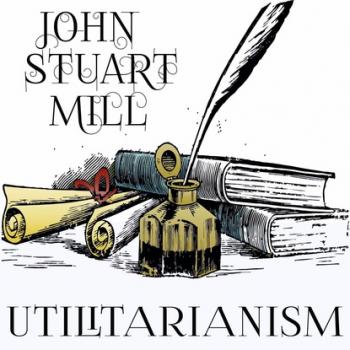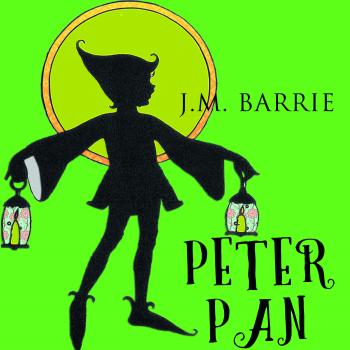Мультимедийное издательство Стрельбицкого
Все книги издательства Мультимедийное издательство СтрельбицкогоGulliver's Travels
Gulliver, an adventurous traveler, sails through the unknown waters of seas and oceans. A storm ruptures his ship and the sailor ends up unconscious on the shore of a mysterious country. Having woken up, the sailor finds himself surrounded by tiny men, who are trying to tie him and chain him to the ground. He easily gets rid of the restraints, only to find himself dragged into the epicenter of the civil war that began because of a mere trifle. Jonathan Swift's satiric-fantasy novel ‘Gulliver's Travels’ cleverly mocks human and social flaws. Famous works of the author Jonathan Swift's: Meditation Upon a Broomstick, A Tale of a Tub, The Battle of the Books, Gulliver's Travels, Essays: Thoughts on Various Subjects, Moral and Diverting, An Argument Against Abolishing Christianity, The Conduct of the Allies, Drapier's Letters, A Modest Proposal, Directions to Servants.
Utilitarianism
Mill's book Utilitarianism first appeared as a series of three articles published in Fraser's Magazine in 1861 and was reprinted as a single book in 1863. John Stuart Mill was brought up as a Benthamite with the explicit intention that he would carry on the cause of utilitarianism. Utilitarianism is a family of consequentialist ethical theories that promotes actions that maximize happiness and well-being for the majority of a population. Although different varieties of utilitarianism admit different characterizations, the basic idea behind all of them is to in some sense maximize utility, which is often defined in terms of well-being or related concepts. Utilitarianism is a version of consequentialism, which states that the consequences of any action are the only standard of right and wrong. Unlike other forms of consequentialism, such as egoism and altruism, utilitarianism considers the interests of all beings equally. Famous works of the author John Stuart Mill: A System of Logic, Essays on Some Unsettled Questions of Political Economy, Principles of Political Economy, A Few Words on Non-intervention, On Liberty, Considerations on Representative Government, Utilitarianism, Аutobiography, Three Essays on Religion, Socialism, The Subjection of Women, England and Ireland.
On Liberty
On Liberty is a philosophical essay by the English philosopher John Stuart Mill. Published in 1859, it applies Mill's ethical system of utilitarianism to society and state. Mill suggests standards for the relationship between authority and liberty. He emphasizes the importance of individuality, which he considers prerequisite to the higher pleasures—the summum bonum of utilitarianism. Furthermore, Mill asserts that democratic ideals may result in the tyranny of the majority. Among the standards proposed are Mill's three basic liberties of individuals, his three legitimate objections to government intervention, and his two maxims regarding the relationship of the individual to society. On Liberty was a greatly influential and well-received work. Some classical liberals and libertarians have criticized it for its apparent discontinuity with Utilitarianism, and vagueness in defining the arena within which individuals can contest government infringements on their personal freedom of action. The ideas presented in On Liberty have remained the basis of much political thought. It has remained in print since its initial publication. A copy of On Liberty is passed to the president of the British Liberal Democrats as a symbol of office. Mill's marriage to Harriet Taylor Mill greatly influenced the concepts in On Liberty, which was published shortly after she died. Famous works of the author John Stuart Mill: State of Society In America, Civilization, A System of Logic, Essays on Some Unsettled Questions of Political Economy, The Principles of Political Economy: with some of their applications to social philosophy, A Few Words on Non-intervention, Considerations on Representative Government, Utilitarianism, On Liberty, Inaugural Address at St. Andrews, England and Ireland, The Subjection of Women, Autobiography, Three Essays on Religion, Socialism.
Faust
Faust is a tragic play in two parts by Johann Wolfgang von Goethe, usually known in English as Faust, Part One and Faust, Part Two. Although rarely staged in its entirety, it is the play with the largest audience numbers on German-language stages. Faust is considered by many to be Goethe's magnum opus and the greatest work of German literature. The earliest forms of the work, known as the Urfaust, were developed between 1772 and 1775; however, the details of that development are not entirely clear. Urfaust has twenty-two scenes, one in prose, two largely prose and the remaining 1,441 lines in rhymed verse. The manuscript is lost, but a copy was discovered in 1886. The first appearance of the work in print was Faust, a Fragment, published in 1790. Goethe completed a preliminary version of what is now known as Part One in 1806. Its publication in 1808 was followed by the revised 1828–29 edition, the last to be edited by Goethe himself. Goethe finished writing Faust Part Two in 1831; it was published posthumously the following year. In contrast to Faust Part One, the focus here is no longer on the soul of Faust, which has been sold to the devil, but rather on social phenomena such as psychology, history and politics, in addition to mystical and philosophical topics. The second part formed the principal occupation of Goethe's last years. Among the most significant works Johann Wolfgang von Goethe: Faust, The Sorrows of Young Werther, Wilhelm Meister's Apprenticeship, Elective Affinities, Prometheus, Zur Farbenlehre, Italienische Reise, West–östlicher Divan and many more.
Three Men in a Boat (to say nothing of the dog)
Three Men in a Boat (To Say Nothing of the Dog), published in 1889, is a humorous account by English writer Jerome K. Jerome of a two-week boating holiday on the Thames from Kingston upon Thames to Oxford and back to Kingston. The book was initially intended to be a serious travel guide, with accounts of local history along the route, but the humorous elements took over to the point where the serious and somewhat sentimental passages seem a distraction to the comic novel. One of the most praised things about Three Men in a Boat is how undated it appears to modern readers – the jokes have been praised as fresh and witty. The three men are based on Jerome himself (the narrator Jerome K. Jerome) and two real-life friends, George Wingrave (who would become a senior manager at Barclays Bank) and Carl Hentschel (the founder of a London printing business, called Harris in the book), with whom Jerome often took boating trips. The dog, Montmorency, is entirely fictional but, «as Jerome admits, developed out of that area of inner consciousness which, in all Englishmen, contains an element of the dog». The trip is a typical boating holiday of the time in a Thames camping skiff. This was just after commercial boat traffic on the Upper Thames had died out, replaced by the 1880s craze for boating as a leisure activity.[citation needed]. Following the overwhelming success of Three Men in a Boat, Jerome later published a sequel, about a cycling tour in Germany, titled Three Men on the Bummel (also known as Three Men on Wheels, 1900). Famous works of the author Jerome K. Jerome: Idle Thoughts of an Idle Fellow, Three Men in a Boat, Diary of a Pilgrimage, Three Men on the Bummel, Paul Kelver, All Roads Lead to Calvary.
Pride and Prejudice
Jane Austen is one of the founders of classic novels for women. Her most famous novel Pride and Prejudice is rightfully considered to be the masterpiece of the world literature. Walter Scott, Somerset Maugham, Virginia Woolf and Richard Aldington admired the talented “first Lady” of the English literature. Wittily and directly described actions of the novel happen in provincial England in the end of eighteenth century. For about two hundred years readers have been mesmerised by the love story of Mr Darcy and Miss Elizabeth who managed to correct the mistake of pride and prejudice. Famous works of the author Jane Austen: Sense and Sensibility, Pride and Prejudice, Mansfield Park, Emma, Northanger Abbey, Persuasion, Lady Susan.
Наука про те, як бути великим
«Наука бути великим» – це третя частина знаменитої трилогії Уоллеса Д. Уоттлза і посібник для всіх, хто шукає успіху, слави і визнання. Книга призначена для самого широкого кола читачів, незалежно від статі і віку – для людей, які хочуть реалізувати в житті свій потенціал і стати видатною особистістю. Тут просто, доступно і без зайвих слів показаний прямий шлях до успіху і процвітання. Тепер ви зможете розвинути в собі будь-які здібності, здійснити будь-які свої мрії і стати тим, ким захочете.
Другой мир. Скорбная песнь
Что делают люди, когда приходит безысходность, когда впереди ждёт только одно – смерть! Одни выбирают смерть с честью, а другие? Все ли доживут до утра в битве с армией колдунов?
Peter Pan
Peter Pan is a fictional character created by Scottish novelist and playwright James Matthew Barrie. A romantic fairy tale Peter Pan is a favourite story of many generations of children all over the world. The main character is a boy who never grows up, can fly, lives in Neverland and fairies are his friends. He gives a flying ability to three children from London – Wendy, John and Michael Darling and takes them to a mysterious land where they have exciting and sometimes rather scary adventures. Famous works of the author J. M. Barrie: The Little White Bird, Peter Pan, The Admirable Crichton.









